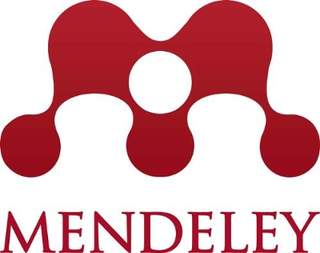REFORMING THE ROLE OF THE PARTIES IN URBAN MANGROVE FOREST MANAGEMENT: (CASE STUDY ON MANGROVE FOREST MANAGEMENT IN JAKARTA BAY)
Abstract
Mangrove forests in Jakarta Bay have been degraded and deforested, resulting in flooding, intrusion, abrasion, and reduced fishery production. Mangrove forests have the characteristics of common property resources that tend to be damaged because their rights difficult to enforces. The parties involved in carrying out their role are not optimal so that conditions remain degraded. This study was conducted to find a form of the arrangement of the party's role in the mangrove forest management. Research conducted at Muara Angke, North Jakarta and Muara Gembong, Bekasi Regency. The results showed that key players have not made a comprehensive plan of mangrove forest management. In order to realize sustainable mangrove, it's required to increase the role of the people who originally only as Subjects to become Key Players through community development activities. NGOs and Research Institutions need to increase the role from Crowds into Context Setters which have great impact in policy making. It is needed to form the Coordinating Team of Mangrove Ecosystem Management Strategy at the provincial and regent levels to synergize the policy and management program of mangrove ecosystems. Empowerment activities need to be carried out intensively to promote changes in the role of mangrove management.
Keywords
Full Text:
PDFReferences
Alikodra, H.S. (2002, Maret) Pembangunan daerah berintikan hutan. Makalah disajikan dalam diskusi panel Penyelenggaraan Kehutanan Daerah. Bogor: Institut Pertanian Bogor.
Bromley, D.W. (1998). Tenure regimes and sustainable resource management: tenure and sustainable use. Norway: Center for Development and the Environment, University of Oslo.
Dahuri, R., Rais, J., Ginting, S.P., dan Sitepu, M.J. (2001). Pengelolaan sumber daya wilayah pesisir secara terpadu. (Cetakan ke dua). Jakarta: PT Pradnya Paramita.
Kementerian Lingkungan Hidup dan Kehutanan. (2015). Album peta kepekaan lingkungan wilayah pesisir dan laut Teluk Jakarta. Jakarta: Kementerian Lingkungan Hidup dan Kehutanan.
Kusmana, C. (2002). Pengelolaan ekosistem mangrove secara berkelanjutan dan berbasis masyarakat. Makalah disajikan dalam Lokakarya Nasional Pengelolaan Ekosistem Mangrove. Jakarta.
Nugroho, B. (2008). Reformasi kelembagaan dan organisasi: institutional and organisational reform (Bahan kuliah kelembagaan pengelolaan hutan). Bogor: Departemen Manajemen Hutan, Fakultas Kehutanan. Institut Pertanian Bogor.
Ostrom, E. (2008). Doing institutional analysis: digging deeper than market and hierarchies. In C. Menard and M. Shirley (eds). Handbook of new institutional economics handbook of new institutional economics. (pp. 819-848). Springer.
Parawansa, I. (2007). Pengembangan kebijakan pembangunan daerah dalam pengelolaan hutan mangrove di Teluk Jakarta secara berkelanjutan. (Disertasi Pascasarjana). Bogor: Sekolah Pascasarjana IPB.
Peraturan Daerah Kabupaten Bekasi Nomor 5 Tahun 2003 tentang Rencana Tata Ruang Kawasan Khusus Pantai Utara.
Reed, M.S., Graves, A., Dandy, N., Posthumus, H., Hubaek, K., Morris, J., Stringer, L.C. (2009). Who's in and why? A typology of stakeholder analysis methods for natural resource management. Journal of Environ-mental Management, 2009(90), 16.
Saenger, P. (1999). Sustainable management of mangroves. New South Wales: Southern Cross University.
Santosa, N. (2012). Arahan kebijakan dan strategi pengelolaan kawasan mangrove berkelanjutan di
Muara Angke Daerah Khusus Ibukota Jakarta (Disertasi Pascasarjana). Bogor: Sekolah Pascasarjana IPB.
Satria, A. (2009). Pesisir dan laut untuk rakyat. Bogor: IPB Press.
Suhaeri. (2005). Perubahan institusi untuk mengatasi kerusakan hutan mangrove: Studi kasus pengelolaan kawasan hutan mangrove di Kabupaten Bekasi Provinsi Jawa Barat. (Disertasi Pascasarjana). Bogor: Sekolah Pascasarjana IPB.
DOI: https://doi.org/10.20886/jakk.2016.13.1.29-40
Copyright (c) 2016 Jurnal Analisis Kebijakan Kehutanan

This work is licensed under a Creative Commons Attribution-NonCommercial-ShareAlike 4.0 International License.



